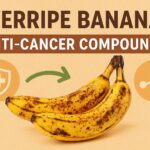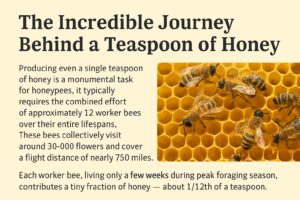Overripe Bananas: How a Simple Fruit May Help Fight Cancer Naturally
Introduction: From Everyday Snack to Natural Medicine
Bananas are one of the most loved fruits in the world — delicious, affordable, and packed with nutrients. But did you know that overripe bananas, the ones covered in brown spots, might contain powerful anti-cancer compounds?
Recent research reveals that as bananas ripen, they undergo chemical changes that may enhance their antioxidant content. These antioxidants and bioactive compounds could play a role in boosting the immune system and potentially reducing the risk of certain cancers.
Let’s explore what the science actually says about this “super banana” claim and how you can include it safely in your diet.
What Science Says About Overripe Bananas and Cancer Prevention
According to several scientific studies, bananas — particularly their peels and pulp — contain phytochemicals known for their anti-cancer and antioxidant effects. Compounds such as ferulic acid, chlorogenic acid, and catechins have shown promise in laboratory tests for inhibiting tumor cell growth and promoting cell apoptosis (natural cell death of damaged or cancerous cells).
A 2022 review found that banana extracts can target multiple cancer types, including breast, colon, and liver cancer cells, by disrupting cancer signaling pathways. Other research also notes that ripe banana peels are richer in phenolic and flavonoid compounds, which help neutralize harmful free radicals in the body.
In simple terms, the riper the banana, the higher its concentration of antioxidants — natural compounds that protect cells from oxidative stress, a key factor in cancer development.
The Truth About the “Tumor Necrosis Factor” Claim
Social media often claims that overripe bananas produce Tumor Necrosis Factor (TNF), a protein that kills cancer cells. Unfortunately, this statement is a myth.
The truth is, TNF is a protein produced by the human immune system, not by plants. Bananas do not contain TNF, nor do they “generate” it as they ripen. This misunderstanding likely arose from an early Japanese study that linked certain banana extracts to immune activation in mice.
However, while bananas don’t make TNF, they do appear to enhance the body’s natural immune response, which can indirectly support cancer prevention.
The Role of Resistant Starch in Green and Ripe Bananas
Interestingly, not only overripe bananas but also green, unripe bananas offer unique health benefits.
Green bananas are rich in resistant starch, a type of fiber that feeds beneficial gut bacteria. A major long-term study, the CAPP2 trial, found that consuming resistant starch (equivalent to eating slightly green bananas daily) significantly reduced the risk of gastrointestinal cancers by over 50% in people with genetic predispositions.
So whether green or brown-spotted, bananas support your health in different ways:
- Green bananas: higher resistant starch → gut health, reduced cancer risk
- Overripe bananas: higher antioxidants → cellular protection, anti-inflammatory effects
Banana Peel: The Hidden Source of Antioxidants
Most people throw away the banana peel, but it’s actually a nutrient powerhouse. Studies show that banana peel extracts exhibit strong anti-cancer and anti-inflammatory properties.
Banana peels contain:
- Flavonoids and polyphenols – potent antioxidants
- Tannins – known for their antimicrobial and cell-protective abilities
- Carotenoids – beneficial for eye and immune health
If you want to try it, you can blend a small portion of the banana peel into smoothies or bake it into banana bread. Always use organic bananas and wash the peel thoroughly to avoid pesticide residue.
Practical Ways to Use Overripe Bananas for Health
- Smoothies: Blend overripe bananas with spinach, oats, and almond milk for an antioxidant-rich breakfast.
- Banana Bread: Brown bananas make the perfect natural sweetener for healthy baked goods.
- Frozen Treats: Freeze slices of overripe bananas for natural “ice cream.”
- Peel Powder: Dehydrate banana peels and grind them into a powder to mix with smoothies or oatmeal.
Remember, moderation is key — overripe bananas are sweeter and contain more simple sugars, so balance them with fiber-rich foods.
What We Know — and What We Don’t Yet Know
Supported by Research:
- Bananas contain natural compounds that may inhibit cancer cell growth in lab studies.
- Ripe bananas have higher antioxidant levels than unripe ones.
- Green bananas’ resistant starch may help reduce cancer risk.
Not Yet Proven in Humans:
- Eating overripe bananas does not directly prevent or cure cancer.
- The “tumor necrosis factor” theory is false.
- More clinical trials are needed to confirm banana compounds’ effects in humans.
Conclusion: A Superfruit Worth Keeping on Your Table
While overripe bananas are not a miracle cure, science supports their potential as part of a cancer-preventive, antioxidant-rich diet. They’re affordable, accessible, and packed with compounds that help protect your body’s cells from damage.
So next time you see a bunch of spotted bananas on your counter, don’t throw them away — those brown spots are signs of increased antioxidant power. Enjoy them as part of a balanced, colorful diet that fuels your body’s natural defenses and keeps you healthy from the inside out.








